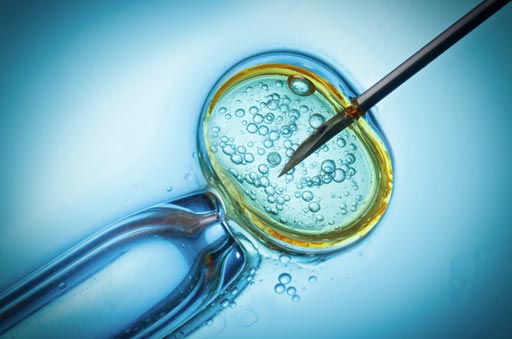Male Partner Age Affects IVF Delivery Rates
By HospiMedica International staff writers
Posted on 20 Jul 2017
A new study shows that the cumulative incidence of live birth following in vitro fertilization (IVF) can be appreciably reduced by the fathers increasing age.Posted on 20 Jul 2017
Researchers at Beth Israel Deaconess Medical Center (BIDMC; Boston, MA, USA) and Harvard Medical School (HMS; Boston, MA, USA) conducted a study that analyzed almost 19,000 IVF cycles performed at a single center in Boston (MA, USA) between 2000 and 2014. The study population included 7,753 couples. The women were stratified according to four age bands: under 30, 30-35 years, 35-40 years, and 40-42; men were stratified into these same four age bands, with an additional band of 42 and over.

Image: An IVF insemination procedure (Photo courtesy 123rf.com).
Analysis of the cumulative incidence of live birth revealed no significant decline in cumulative live birth when the women had a male partner the same age or younger. However, women 35-40 years of age significantly benefited from having a male partner under 30, with a nearly 30% relative improvement in cumulative incidence of live birth (70%) compared to women whose partner was 30-35 (54%). Live birth rate was lowest in couples where the female partner was in the 40-42 age range, and in this group the age of the male partner had no impact.
The researchers stressed that female age had a larger effect on fertility than male age. While the effect of female age on fertility is overwhelmingly due to increased rates of chromosomal abnormality, the proposed mechanisms in the effect of male age on pregnancy are more subtle. The effect of female age alone demonstrated a 46% relative decrease from the under-30 to 40-42 age band, while male age alone showed only 20% relative decrease over the same age span. The study was presented at the 33rd annual conference of the European Society of Human Reproduction and Embryology (ESHRE), held during July 2017 in Geneva (Switzerland).
“Increasing male age is associated with a decreased incidence of pregnancy, increased time to pregnancy, and increased risk of miscarriage,” concluded lead author and study presenter Laura Dodge, MD, of BIDMC and HMS. “The mechanisms are unclear, but may include impaired semen parameters, increased DNA damage in sperm, and epigenetic alterations in sperm that affect fertilization, implantation, or embryo development.”
IVF is an assisted reproductive technology (ART) in which an egg is combined with sperm outside the body. The process involves monitoring and stimulating a woman's ovulatory process, removing ova and fertilizing them in the laboratory. The fertilized zygote undergoes embryo culture for 2–6 days, and is then implanted in the same woman's uterus or in a surrogate one, with the intention of establishing a successful pregnancy.
Related Links:
Beth Israel Deaconess Medical Center
Harvard Medical School














